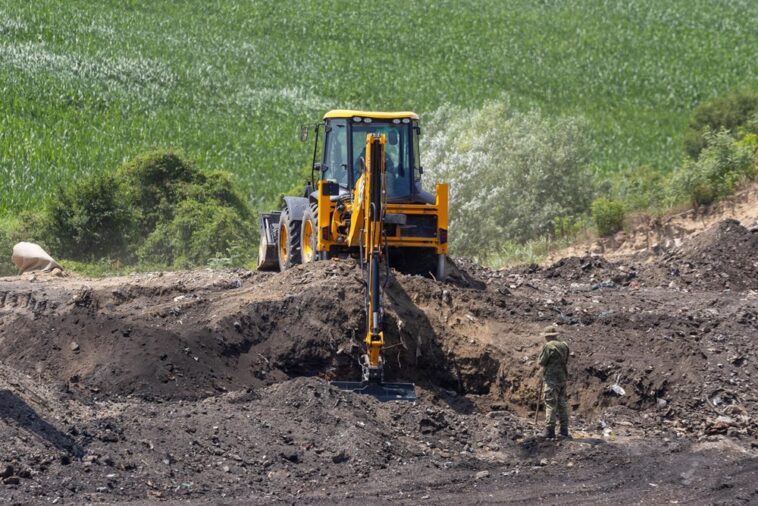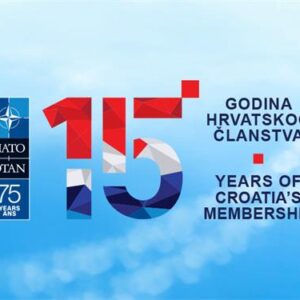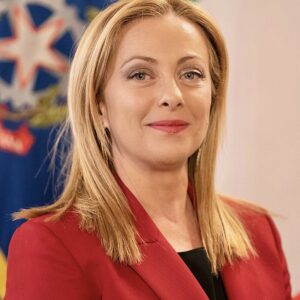Celebrations of liberating Serb-occupied parts of Slavonia in Croatia in early May 1995 by Croatian military forces, viz Operation Flash, are behind us this year, what is approaching in August is celebrating Operation Storm that in early August of 1995 liberated by military actions other parts of Croatian territory around the town of Knin that were of Serb-occupied. It has been 29 years since these events and yet hundreds of Croatian people are still registered as missing from those areas of Croatia, presumed massacred by the Serbian forces, including rebel Serbs from Croatia, and buried at places only Serbs know about. Croatia is still trying to establish the fate of 1,797 missing people from its 1991-1995 war of independence from then-Yugoslavia, including 500 people missing from Vukovar-Srijem county, liberated from joint rebel Serb (and Yugoslav Peoples’ Army) occupation only in late 1998 as a result of peaceful reintegration talks and negotiations between Croatia and Serbia on the basis of which amnesty was given to hundreds of rebel Serbs among whom were those that murdered, massacred, raped and ethnically cleansed Croats from their homes in that area.
It was late June 2024 when excavators dug through piles of waste at a garbage dump surrounded by sunflower fields in Croatia , searching for bodies of victims killed in war more than three decades ago, after remains of 10 people were found then. Minister of Veterans’ Affairs of Croatia Tomo Medved told the families of the missing that in the process of finding missing persons from the Homeland War, Croatia will never get tired, and that the perpetrators of crimes will be held accountable for their crimes. This belongs to the perpetual rhetoric Croatian governments have been spinning for decades. There has been plenty of time and very likely great opportunities to find out where the remains of missing Croatian veterans and civilians lie especially given that, for example, the HDZ government has worked in close coalition with leaders of Serb minority associated with rebel Serbs including those given amnesty for war crimes against Croats.
After a full two years since the beginning of the search of the Petrovacka Dola landfill (garbage dump) in Vukovar, where trial excavations in search of the missing from the Homeland War have been ongoing since April 2022, a mass grave with at least ten bodies has now been found, confirmed Deputy Prime Minister and Minister of Croatian Veterans Tomo Medved.
Croatian investigators reportedly believe the victims found late June 2024 at the dump had been reburied there after initially being buried elsewhere, as they were covered with earth and sludge that is not typical for the site where the remains were found.
Preliminary investigation and findings have established that these are victims whose remains were moved from the primary location to Petrovacka Dola in the first half of 1992, during the temporary occupation of the city of Vukovar by Serbs. In the wider area of Vukovar, four mass graves have been found in the past eight years, all in Vukovar and its surroundings, and this one on Petrovacka Dola is the fifth. A large number of individual graves were found in the wider area of Croatia, 178 remains were exhumed, and 263 people were identified. A total of 150 mass graves and a large number of individual graves have been found in Croatia since the war.
The leader of the Independent Serbian Democratic Party/SDSS in Croatia, Milorad Pupovac, has demonstrated no will nor decency in his long-term as member of Croatian Parliament representing Serb minority to influence pursuits that would achieve the discovery of graves and mass graves of those missing after the war. The amnesty from war crimes prosecution given to Serbs by Croatian government in 1998 could have led to locating of mass graves but it did not.
Milorad Pupovac, who was for many years prior to 2024 a key coalition pillar of both Ivo Sanader’s and Andrej Plenkovic’s HDZ/ Croatian Democratic Union party government, had consistently made efforts to spoil the celebrations of both the Flash the Storm Operations celebrations for Croatia. While every honest citizen of Croatia prepared the Croatian flag to proudly display it on the occasion of these magnificent victories of liberation, deliberately provoked and talked about two types of tears placing emphasis on Serb tears and suffering during the war of aggression against Croatia by members of his rebel Serb community including his immediate family, viz. his brothers. He even made trips to Belgrade, Serbia, during the victory celebrations in Croatia to join the Serbian government in commemoration Operation Storm as a platform of Serb suffering!
The Milorad Pupovac family arranged themselves strategically during the war of aggression against Croatia. The three sons of Obrad Pupovac (Milorad’s father), during the Great Serbian aggression against the Republic of Croatia, each played their own card… Milorad played the role of “peacemaker” in Zagreb in case his brothers were defeated, which eventually happened. Another brother – Vojislav in the nineties “stood” in the uniform of the so-called Army of the Republic of Serbian Krajina (a part of Croatian territory that was occupied by rebel Serbs who ethnically cleansed Croats and other non-Serbs from the area right from the start of the aggression).
According to Milorad’s personal confession, he was “mobilised”, and in 1995 he was wiped out of Croatia… He returned to Cerjane Donje near Benkovac in Croatia fourteen years later – as a defeated member of the aggressor paramilitary.
The third brother – Mladen Pupovac… willingly played the card of occupying Croatia – and was not “mobilised” (?!) during the Great Serbian aggression against Croatia. As a sergeant of the Yugoslav People’s Army/JNA, Mladen Pupovac even progressed at that time – so during the attack on Croatia, in 1992, he was promoted to the rank of sergeant first class – only to leave the war as a senior sergeant! In 1991, Milorad’s brother was awarded the commemorative medal ’50 years of the JNA’, and four years after the end of the aggression, he received a medal in Serbia for “merits in the fields of defence and security”… This demonstrates that Mladen Pupovac never took off his uniform of the communist Yugoslavia army and that is the card he evidently plays even today – given that his military career did not end with defeat of Serbs in August 1995, Operation Storm! This brother of the head of the SDSS, Milorad Pupovac, also participated in Serbia’s aggression against Kosovo, as well as during the intervention in 1999 – in Serbia’s conflicts with NATO forces, for which he received a military memorial and decoration! If anything that is profoundly cruel. Ina Vukic
Indeed, it appears evident that the long-time member of Croatian Parliament representing Serb minority, Milorad Pupovac, secretly supported the Serb armed rebellion against Croatia during 1990’s.
“ The leader of Serbian minority Milorad Pupovac used to go to his village Ceranje Donje near Benkovci, which the Chetniks held under control and expelled all Croatians from it during the war years. It’s not clear how he was able to do that but it’s assumed that he had help from members of UNPROFOR forces who were there and kept the line of separation (A photograph, reportedly taken in 1993, has been discovered that evidences his visits to his village during the war)… Pupovac supported, or had nothing against, armed rebellion of the local Serbs against the Republic of Croatia in which his two brothers actively participated. Serbs were the ethnic majority in the village of Ceranje Donje but some Croatian families also lived there; their houses were and still are next door to Milorad Pupovac family home. The Croatian families suffered abuse by the local Serbs and Milorad Pupovac’s family did not lift a finger to protect them…” (from article by Ivica Marijacic, HRVATSKI LIST, 27.12.2012)
Accepting the fact that no person can be held accountable for crimes committed by another individual it stands to reason that if both individuals belong to the same family the mental and emotional ties are strong and, hence, any love or hatred for others may indeed be shared if not passed on between brothers.
The cruelty towards Croatian people, especially towards the war veterans who defended Croatia from the brutal Serb aggression in the 1990’s and victims of that aggression, in placing Milorad Pupovac in the government coalition and now as head of Croatian Parliamentary Committee for Human Rights and Minority Rights is a destructive madness that can only be put in motion by a government that is not in business of protecting the rights and identity of its own nation. It is, in my opinion extremely cruel to place a subscriber to Serb aggression against Croats as head of parliamentary human rights committee that also deliberates on human rights of Croats, the majority population in Croatia. If the right to burial is a human right, then the Croatians still considered missing from the Serb aggression of 1990’s and Croatia itself cannot count on Pupovac to do anything about even finding the mass graves where the murdered missing were buried, let alone afford them the possibility of decent burial or their graves to be located and marked as the grave of every human being should be. Ina Vukic




